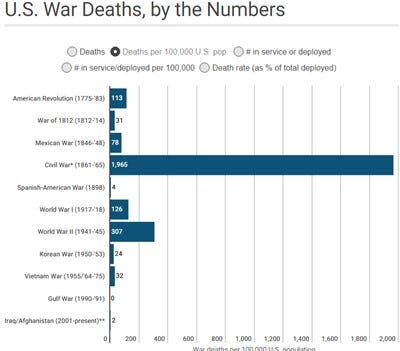Is it Mere Ignorance or Duplicity? (Part 1)
On August 4, 1934, thousands of delegates from throughout the world met in Berlin for the Baptist World Alliance congress.
It was a great relief to be in a country where salacious sex literature cannot be sold; where putrid motion pictures and gangster films cannot be shown. The new Germany has burned great masses of corrupting books and magazines along with its bonfires of Jewish and communistic libraries (Watchman-Examiner XXII 37 (September 13, 1934).
Surely a leader who does not smoke or drink, who wants women to be modest, and who is against pornography cannot be all bad, or so the reasoning went. As M. E. Aubrey of England observed in the Baptist Times, Hitler had “brought almost a new Puritanism, which makes its appeal to our Baptist friends, and for the sake of which they can overlook much that cuts across their natural desires.” Baptists from the United States ignored the fact that interpreters were barred from even rendering the word “democracy” in Aubrey’s speech. Priority was placed on personal habits, to the detriment of larger, more vital issues.1
In a time when personal piety was emphasized to idolatrous excess over other aspects of the Christian Faith, a large plurality, if not majority, of American Baptists thought well of Germany’s spic and span Nazi regime. This conference occurred a year after Hitler had arrested and imprisoned more than 100,000 Communists, Social Democrats, union officials, and other “radicals.” Many Baptists approved of these arraignments, despite the lack of valid due process justice.
The scope of moral standards, governing the Baptist mind at that time, was severely circumscribed, far narrower than the holistic ethical standards of the God, they ostensibly worshipped and represented.
Not much has changed for some. Russell Moore, current Editor in Chief of Christianity Today, and past President of SBCs Ethics & Religious Liberty Commission (ERLC), epitomizes this selective standard of morality and the selective and partial application of those standards. Charitably assuming that Moore is not merely a Democrat operative in Christianese garb, pietistic moralism may explain the lack of even-handedness in his critiques of political figures.
The circumscribed moral framework, by which Moore assesses political figures, emphasizes sexual, gender, and racial matters. “Family values” concerns are consistent with his Southern Baptist background. Racism is one to which Moore has been somewhat at odds with that ecclesiastical heritage.
There are no qualms from this corner on any of those matters. The funeral of MLK was among the earliest imprints shaping my sociopolitical conscience. There were low level intergenerational conflicts within my family between my siblings’ and parents’ generations over this matter. Before Moore was out of diapers, racism was a major personal concern.
But the ethic and ethos of the God of Scriptures is far more expansive and holistic than the narrow ethic of Russell Moore and of Evangelicals in general. The deficiency lies in its insufficiency.
Under Moore’s anthropogenic and circumscribed code, Donald Trump comes under special condemnation while the many, but different, ethical flaws and injustices committed by his political foes are ignored. It is due to this partiality that many, including self, have long thought Moore a Democrat operative, selling his soul in the very same and not same manner as those he declaims.
A Circumscribed Ethic
A couple of years ago, I posited to warehouse workers that Trump was the third worst of all American presidents. Trump, being the dubious champion of the working class, these fellows brought up Biden, the vegetative stooge of the elites. I responded that Biden was either the worst, or the second worst to James Buchanan, the president whose folly became catalyst to the first American Civil War. A ‘pox on both their houses’ response did not alienate them.
This is not mere hyperbole. I have sufficient grasp on American history to discern between the presidents.
Because of its greatest urgency at this time, the singular criteria is how politicos deal with imminent civic conflagration. It is rarely prudent to judge upon the basis of a single issue. However, it has become the mortal moral concern, all others being venial in comparison in light of tangible consequences.
The Spanish Civil War (1936–9), I think, serves as the best template for a second civil war in America. When I project body count upon the basis of the Spanish Civil War, I arrive at six or seven million American deaths. This is consistent with the American Civil War in percentage terms, about 2% of total population, barring the use of nuclear or other weapons of mass destruction deployed by Americans upon Americans. In both nominal and relative terms, the America Civil War stole more lives by far than any other war in which Americans were involved.
These ruminations are not callous speculations but derive from deep, even tearful, conviction. By the early 1990s, I was fully convinced, based upon scriptural inference and world history, that America was on the trajectory towards civic conflagration. Now, however, everything screams out that the many and varied causal conditions for civic conflagration merely require a spark, a black or white swan catalyst.
If a father perceives that his children will be harmed, even by each other’s hand, it is the height of evil, in terms of consequences, for that father to ignore the peril. However, both leading candidates (as well as Hillary Clinton in 2016) have not only ignored the threat but, indeed, have exacerbated and quickened this conflagration by their rhetoric, actions, and policies.
Moore’s completely ignores this moral abdication by both wings of the governing class. Just like the Baptists of 1934, his myopic pietism narrows the scope by which he adjudges (and not adjudges) society and its personalities.
*** End of Part One ***
William Loyd Allen, “How Baptists Assessed Hitler,” Christian Century, September 1–8, 1982, p. 890.




